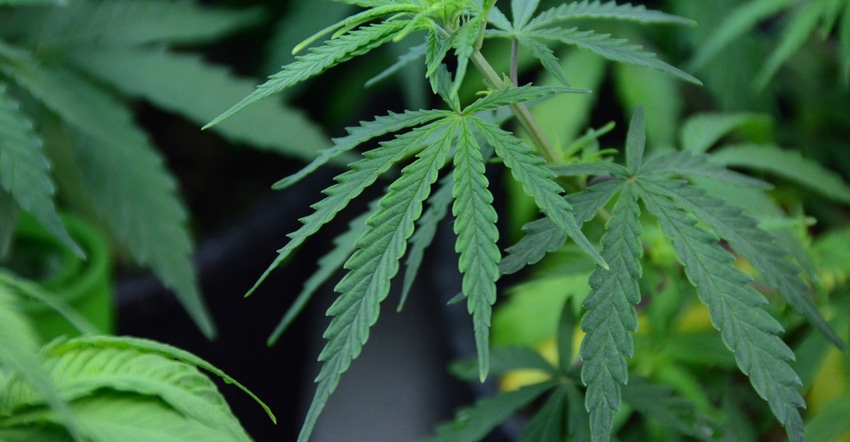
An overwhelming supply of hemp produced for cannabidiol (CBD) flower and oil extraction sank wholesale prices by more than 50% as Illinois wrapped up its first year of industrial hemp production since World War II.
The health and wellness product dropped from up to $4 an ounce before the 2019 growing season started to between $1 and $2 by mid-October — a price that may not cover inputs and the $1 to $2 investment farmers made in hemp seeds bred for CBD production.
“I’m not selling it for that low,” says David Wells, a hemp farmer who also owns a retail store called D&D Hemp Store in Murphysboro, Ill. He processes and sells his own CBD flowers, but he hasn’t invested in the equipment required to extract oil out of flowers, so he buys oil from a third party. “I’m going to hold off selling wholesale until I get the right price.”
Since May, the price of a pure CBD derivative, known as an isolate, fell from around $6,200 per kilogram to around $3,100 per kilogram in Colorado, according to hemp pricing service PanXchange. That price change has trickled down to the farmers who supply hemp flowers to processors.
Ninety-nine percent of the 615 Illinois farmers who received licenses to grow hemp from the Illinois Department of Agriculture chose to farm for CBD production, while a small group of farmers close to Louisville, Ky., harvested varieties of hemp grown for fiber to sell to Sunstrand in that city.
Farmers who grew for CBD are struggling to find wholesale buyers within state lines, as large hemp oil processors such as Illuminent Extracts in Carmi are just now opening their doors after they were permitted in the spring. Of the 149 processors licensed by IDOA within Illinois, most make products at a small scale for farmers markets and small retail stores with hemp they grow themselves.
The licensed hemp farms that also applied to process CBD with IDOA, like D&D Hemp Store in Murphysboro or Banner Harvest in Banner, Ill., were able to meet their demand for cannabidiol flower in-house, but still have to buy CBD derivatives from more established hemp processing states such as Colorado.
“We had hoped to actually have an extraction setup for ourselves as well as to help some other farmers this year, but we just ran out of time, energy and money before we actually got that far,” concludes Yolanda ImOberstag of Banner Harvest. “Until we can get some of ours extracted, we’re making the oils, pain salves — stuff like that — with what we get from out of state.”
About the Author(s)
You May Also Like




